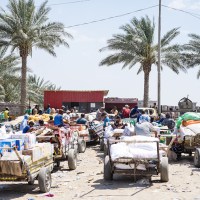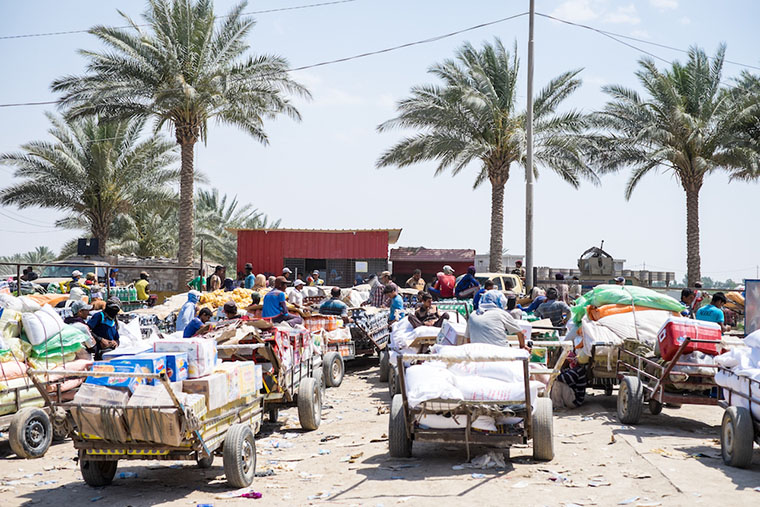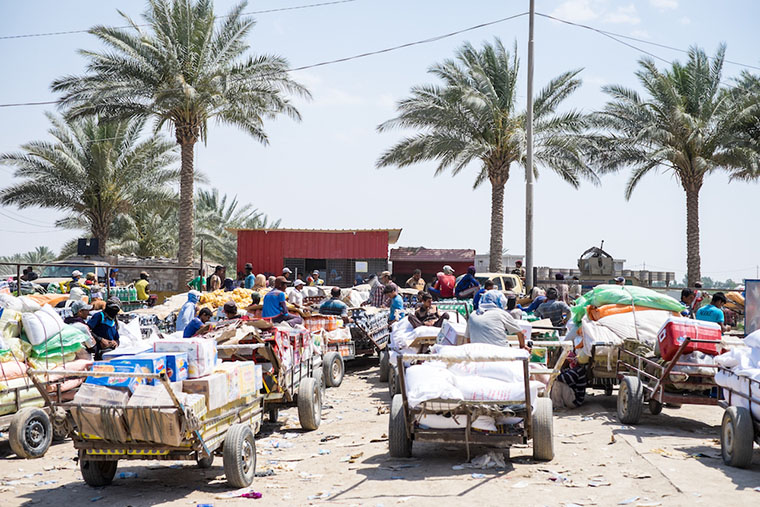
I got to the gathering point at around eight in the morning after a night of intense heat, barking dogs, and little sleep. Everything became a blur of activity over the next few hours and it hit me—I had never before seen the practical meaning of “busy like a bee hive.”
Some of us packed medications, others loaded two large pickup trucks with water tanks, while another group packed food supplies and other necessities into two smaller vehicles. From a distance, it seemed like a time-lapse movie, with everything happening so quickly and in harmony, even though many of us were meeting for the very first time that day.
“You have to wait longer, and it may not happen” said a firm voice over the phone. We were supposed to have security clearance checked a couple days before, but because of extra safety measures that day, the Baghdad Operations’ Command delayed issuing permissions. So we continued to wait, in a line with hundreds of others, for the security clearance needed to cross the Bzebez Bridge. The clock was ticking—it was 11am, and we now had little hope of actually being able to cross that bridge. Everyone was hot, anxious, frustrated. We were reminded that people’s lives were literally depending on our next moves.
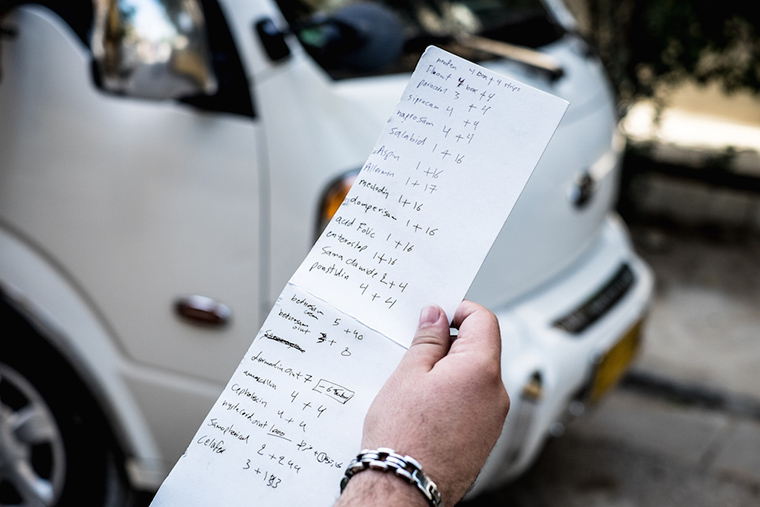
Moving on without security clearance in the hot zones of western Baghdad and the outskirts of Fallujah would only lead to one thing: more frustration and delays at checkpoints. Moreover, the main checkpoint on the Bzebez bridge would not allow us to physically cross over to Anbar without permission. Waiting was our only option.
At 1pm we arrived to a place where we could actually see the Bridge of Bzebez, a single-lane wooden antiquity that used to be a foot bridge but was now reinforced to support the weight of a few cars. Thousands of people were lined up on the opposite side of the bridge waiting to cross to our side, waiting to escape the atrocities happening in Anbar.

Cargo carts formed a long line of their own beside us, waiting to cross over to the displaced families with basic living supplies—some with food and hygiene items, others with gas cans and fuel tanks. The carts were pushed by teens, drenched in sweat and dust, who worked long hours every day.
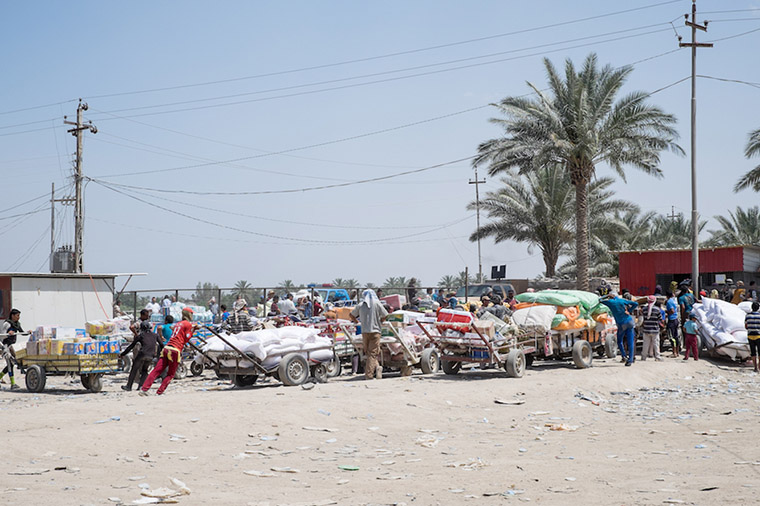
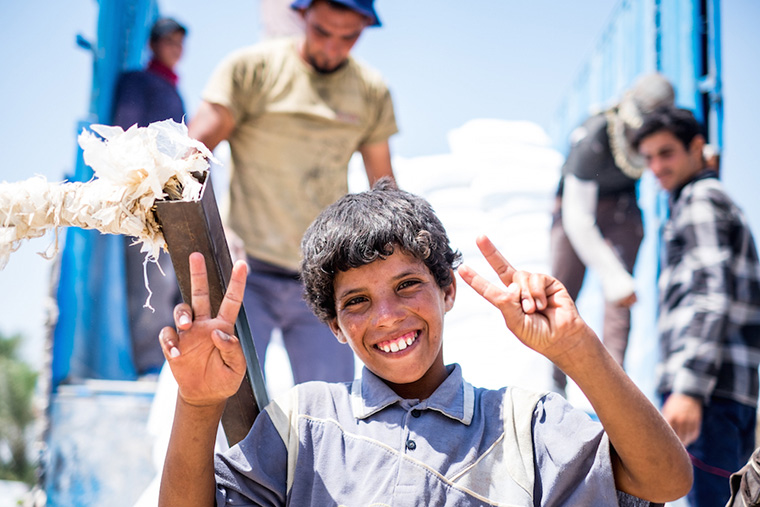
A burst of gunfire went off in the background—no one reacted. I went to the checkpoint officer to learn more. “Well, we are just a few miles away from Daesh (ISIS). That is the daily music of here—we sleep and wake up to the sound of gunfire.”
We waited a further 3 hours, under the unforgiving Iraqi sun, surrounded by displaced families forced to leave their homes in Fallujah, Ramadi and other cities in the western Anbar province. Children were crying, the elderly sought refuge under the shade of the few trees in the area, while soldiers tried to get the paperwork done. There was so much paperwork to be done, and at any time permission could easily be denied due to heavy security measures undertaken by Baghdad’s Operation Command.
At four o’clock, the army radio finally transmitted a message to the checkpoint’s officer, allowing three out of our four-car convoy to cross the bridge. By this time, exhaustion and frustration had taken most of us, but hope was on the rise!
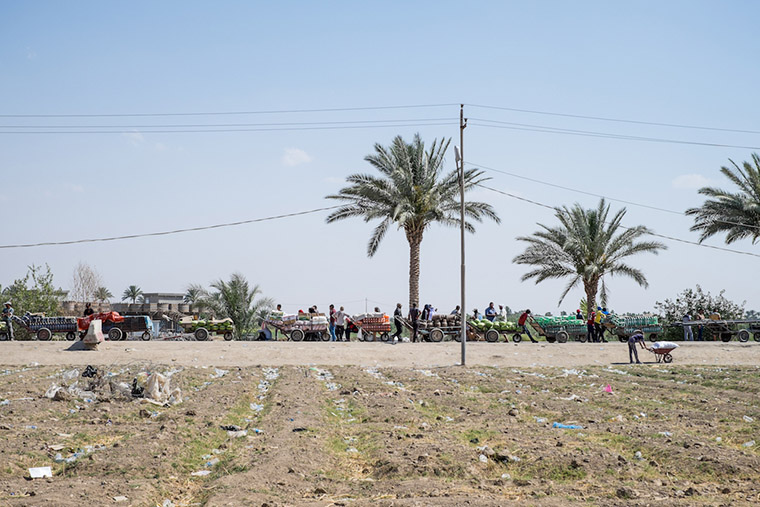
Crossing the bridge, I saw people enjoying the cooler water of Iraq’s Euphrates River, trying to forget the pain of their lives. Others looked at us curiously while waiting in line on the very bridge we were crossing—waiting for their turn to receive permission to pass into Baghdad.
“Anbar Province Welcomes You.” A large sign bore the four words the whole crew was waiting to see for the last eight hours. Two solid weeks of preparation went into preparing for this this humanitarian aid mission, and it was finally becoming a reality.

